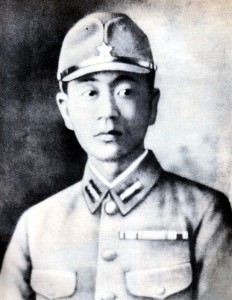Mental Model: The Shoichi Yokoi Fallacy
Shoichi Yokoi was a Japanese tailor born in 1915. When he was 25 years old, his country sent him to war with the idea that he and his fellow soldiers were to fight to the death and avoid the shame of surrender. In 1944, the United States military seized Guam, where Yokoi was stationed. Rather than give up and face disgrace, Yokoi and more than 1,000 of his fellow soldiers hid the jungles. All of his compatriots died of starvation or disease, or were captured. Although he knew that the United States had won the war and Japan had surrendered, he refused to do the same, vowing to honor the emperor for whom he fought.

Shouichi Yokoi was a Japanese soldier who refused to surrender, spending 27 years in hiding.
This went on for 27 years until, finally, Shoichi Yokoi was captured in 1972 by two American hunters. He returned to Japan a symbol of greatness to the older generation, an embarrassment to the younger. As the excellent obituary on him in The New York Times pointed out back in 1997, “Hailed as a hero at a welcoming ceremony in Tokyo’s airport, as millions of Japanese watched on television, he seemed overwhelmed by the changes in the country to which he had returned. He had never heard of television, atomic weapons or jet planes.”
This man wasted 27 years of his life for a set of ideals that mattered not one iota to anyone else. He gave up family, friends, career, success, comfort, and enjoyment all for the sake of “sticking with it” in the spirit of what the Japanese call ganbaru, which is the willingness to “slog on tenaciously through time times” or situations. There is a point at which virtue, when taken to an extreme, can become vice. Shoichi Yokoi was the embodiment of this fallacy.
You have to give yourself the permission to change your mind. You have to be able to re-evaluate the situation and accept that you no longer want, or are willing to go after, the things you once held dear. Did you spend years going to medical school but now, at 50, realize that all you really want to do with your life is paint? Then do it. Go paint. You will die someday and you won’t get this time back. Stop wasting your life and do what you want.
That is the big lesson. A smaller, but still important moral, involves your pocketbook. The Shoichi Yokoi fallacy, as I call it, is heavily influenced by the economic mental model known as the sunk cost fallacy. Many times, humans are wired to consider past investments of time, money, or energy, which cannot be recovered, in determining whether to stay with a project or course of action when the only rational behavior is to consider future probabilities of success.
In its worst manifestation, the sunk cost fallacy can lead to irrational escalation where you are losing money on an investment that went poorly due to permanent capital impairment in the intrinsic value calculation and, instead of cutting your losses, you pour more and more capital after it.
Don’t be like Shoichi Yokoi. When the facts and conditions change, consider changing your mind. There is a difference between principled and being foolish.
[mainbodyad]


